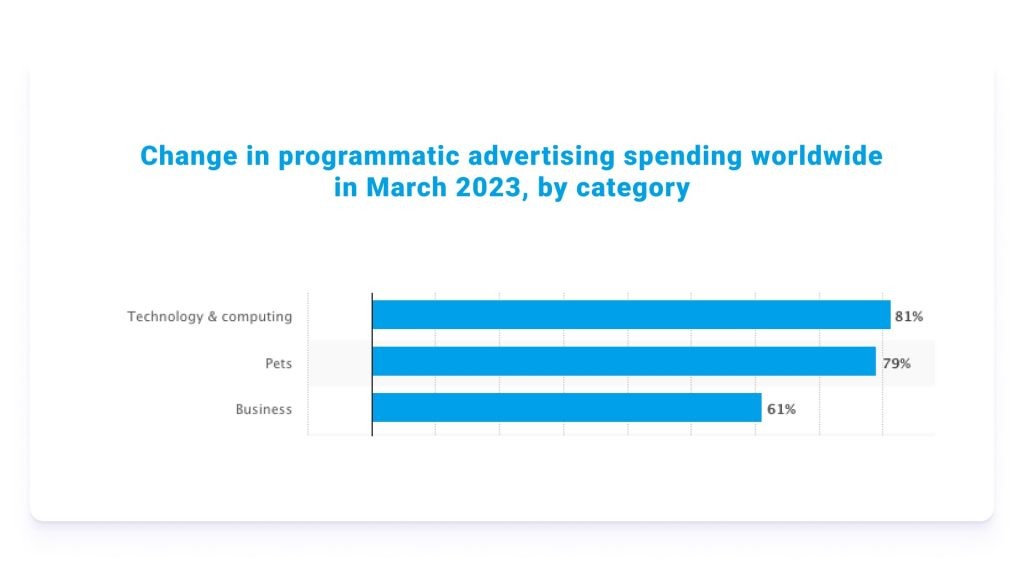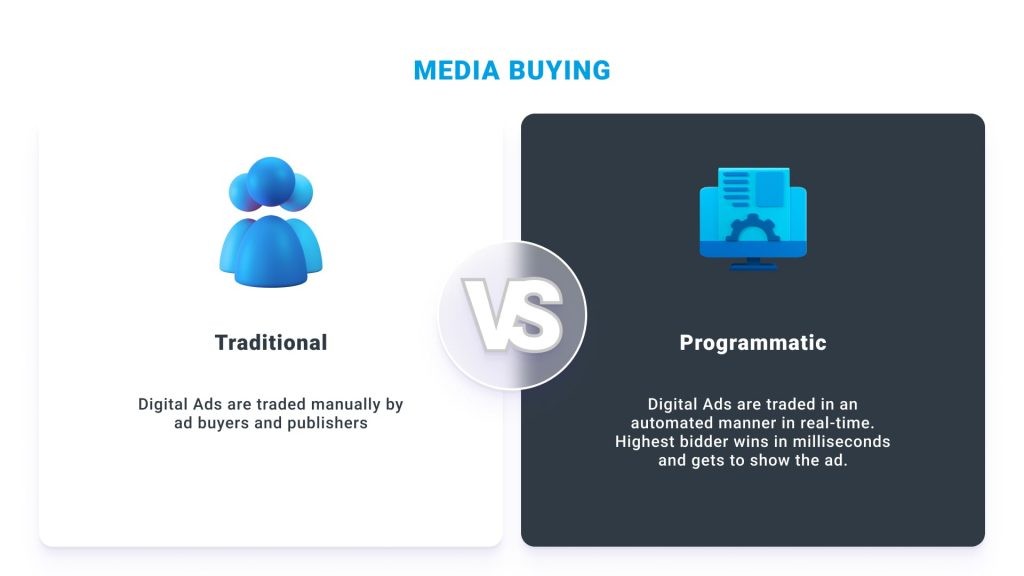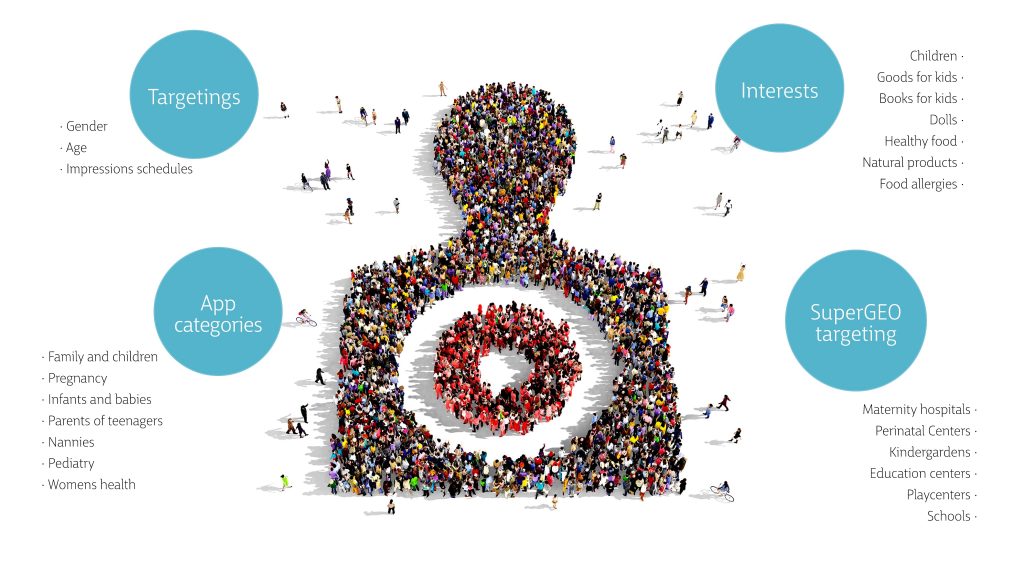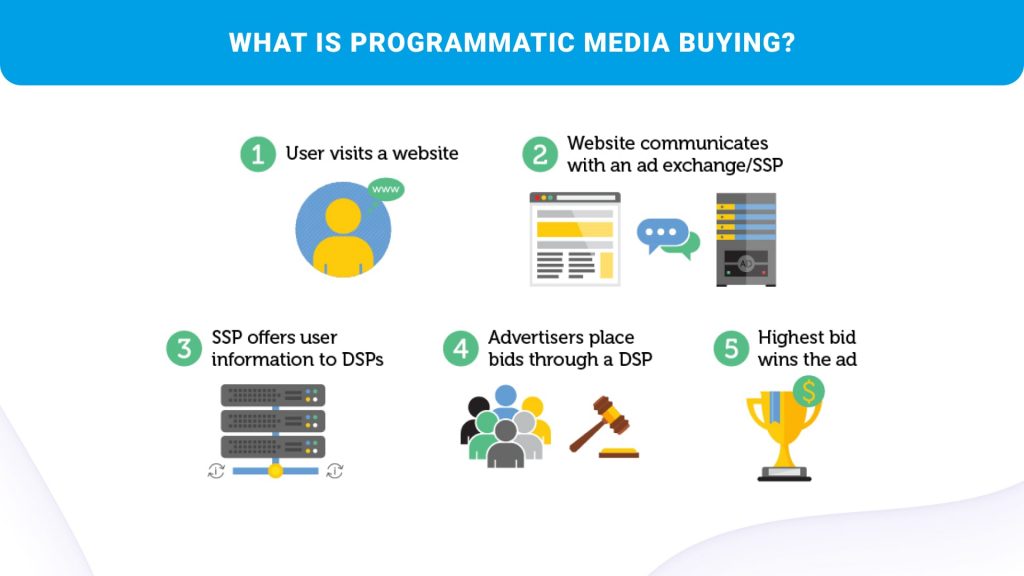What is programmatic media buying and how it works
Programmatic media buying – a mystery process even for experienced digitals workers. Nevertheless, it’s become a leading tool among advertisers and publishers over the past couple of years.
For example, according to statista, global digital ad spending on programmatic advertising has increased. The difference is huge – 81% compared to January 2023 values.

So it’s time to understand how programmatic media buying works.
But first, let’s remember the definition of media buying.
What media buying is?
Media buying – the process of buying advertising inventory or airtime. It involves the publisher and the advertiser.
The publisher – the owner of the advertising inventory.
Media buyer or advertiser – renter of advertising space. He searches options for optimal advertising placement and creates a media plan.
In media buying, platforms are purchased to show advertising. It can be websites, TV channels, radio, social networks, and other digital channels.
By the way, media buying follows certain schemes – advertising pricing models.
Popular advertising pricing models
The choice of purchase model depends on the goals of promotion. Thus, in media buying are popular:
- CPM – Cost per Mille
- CPC – Cost per Click
- CPS – Cost-per-Sale
- CPV – Cost Per View
- CPA – Cost per Action
In addition, BYYD has its own unique purchasing model – Cost Per Session.
The advertiser pays for a session captured by Google Analytics and Yandex Metrica.
We count only those users who clicked through the website and reviewed the information. This method provides KPIs for session/visit duration, viewing depth and bounce rate.
Read more about purchasing models here.
Programmatic media buying
The purchase of advertising through programmatic platforms is also part of media buying. However, the process has many differences compared to the traditional one.
Programmatic media buying is the process of buying advertising on various communication channels. It runs automatically in real time.
This option doesn’t require direct communication between advertisers and publishers. Now most of the actions are done by automated systems on special platforms.
Here’s an example. Many people can see the billboard ad. But such an audience spread is harmful to the advertiser. It doesn’t personalize the promotional offer, but requires a significant outlay.

Programmatic advertising is completely different. Autopurchase gives access to a wide range of targeting and allows to show ads only to interested users.
For instance, baby food sellers can focus on such app categories as “parenting,” “maternity,” “parenting” and others.

Want to learn more about programmatic advertising?
Check out our article “Frequently asked questions about Programmatic”.
Advantages of programmatic buying
- High efficiency.
Before the advent of programmatic products, the human factor played a major role. Deals made directly between buyers and sellers. This increased the cost of the final value and caused system failures.
- Quality of targeting settings.
Programmatic allows advertisers to accurately reach the target audience. The system recognizes the right group by social characteristics, behavioral data, interests, location and other criteria.
- Easy scheduling.
The flexibility of programmatic placement occurs to choose optimal hours for ads displaying. Also, thanks to automation, it’s possible to delegate the publication of advertisements to special management systems.

However, it doesn’t mean that automated systems are responsible for the entire ad buying process. The knowledge and actions of competent specialists are still important. Indeed, they help manage programmatic tools in the right way.
At BYYD, qualified mobile specialists are responsible for campaign management and optimization.
Stages of programmatic media buying
In general, programmatic buying can be divided into three stages:
- Campaign preparation
- Launch and optimization
- Analysis of results
• Preparation includes competitor research, target audience selection, and budget planning. The necessary data for the next launch of the campaign is also collected.
• The campaign is launched according to a predetermined schedule. The actual process of purchasing inventory and placing it is very quick. At this point, it’s important to track the campaign and make adjustments as needed.

BYYD mobile managers optimize mobile advertising campaigns based on user behavior. In the course of their work, specialists analyze bounce rates, session duration, click/session divergence, and browsing depth.
The manager’s participation is important in the programmatic process. As it’s not always possible to automatically measure the quality of the site. For example, the CTR is high, but the necessary behavioral indicators are missing. In this case, our workers adjust the settings and select other sites.
• Analysis is the final stage of programmatic media buying. Here digital workers and automated programs analyze the performances and make forecasts for future campaigns.
The BYYD platform offers a Brand Lift study. It helps to measure the organic recognition of a product after a mobile campaign.
Explore our Brand lift research and learn more about this process on our website.
Conclusion
To sum up, programmatic media buying supports the image of the brand and attracts new users. However, it’s not harmful to key performance indicators.
On the BYYD platform we help businesses deliver their advertising message to the target audience and solve various image problems.
If that’s what you need – write to hello@byyd.me
Was it useful? Then share it with your friends and colleagues!
For consultations and cooperation You can also contact:
- by phone +1 (929) 999-5737;
- or through the form on the site.